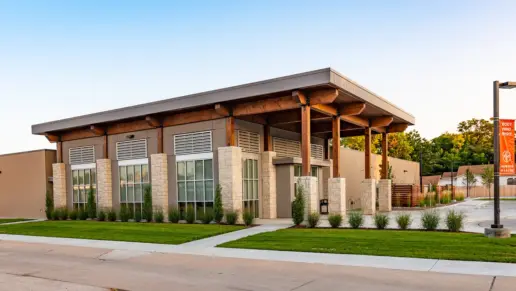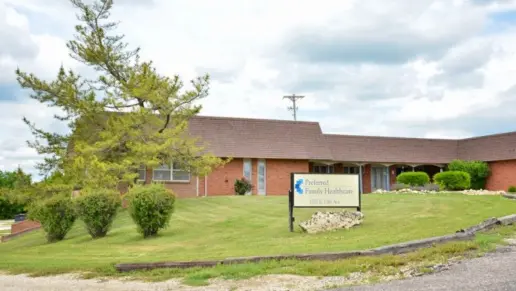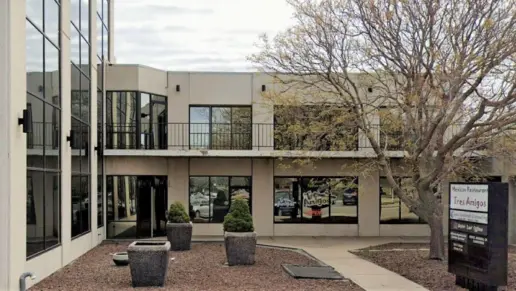Fantastic place and excellent staff, they make a change in your kid and the way he communicates, my son was, and now he's telling me how he feels in a way I can finally have a decent conversation with him without it ending in screaming and crying
About KidsTLC
KIDS TLC – Outpatient Behavioral Health is an outpatient behavioral health clinic in Olathe, Kansas. They provide mental health and behavioral health treatment for children and families. Areas of specialized care include anxiety, LGBTQ gender-affirming care, and trauma-focused care.
Through this programming, you can expect an intensive outpatient program with dialectical behavioral therapy, dyadic developmental psychotherapy, and mediation and conflict resolution. Therapists at KIDS TLC use the PACE model, which has been shown to improve the lives of children and families with attachment disorders. This model has an acronym that means playful, acceptance, curiosity, and empathy. Dialectical behavioral therapy skills groups take place once a week for eight to 12 weeks.
What I like about this facility is that the philosophy of KIDS TLC focuses on the primitive part of the brain where emotional reactions originate. If you send your child here you can expect they will experience improved day-to-day functioning with enhanced social and educational skills.
KIDS TLC is in-network with many commercial insurance plans including Aetna, MultiPlan, Ambetter, Humana, and Blue Cross Blue Shield.
Former clients and their families have mentioned their disappointment in this program and its desired effects. Other former clients commented that their children are changed for the better because of therapy and compassionate staff.
Rehab Score
Gallery
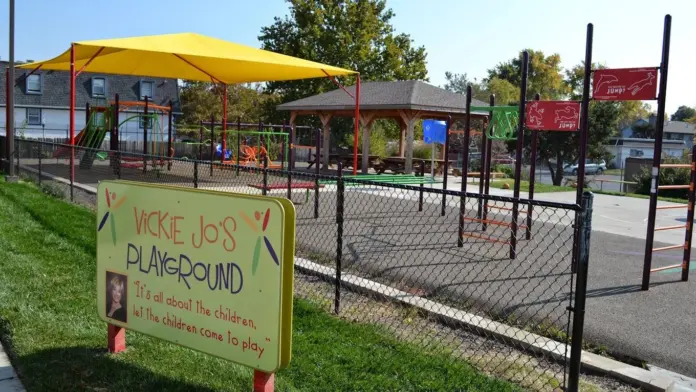
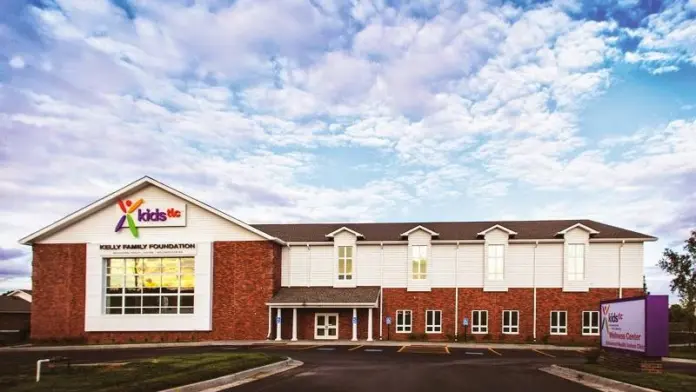
Location
Accepted Insurance
Other Forms of Payment
Private insurance refers to any kind of healthcare coverage that isn't from the state or federal government. This includes individual and family plans offered by an employer or purchased from the Insurance Marketplace. Every plan will have different requirements and out of pocket costs so be sure to get the full details before you start treatment.
Medicaid is a state based program that helps lower-income individuals and families pay for healthcare. Medicaid covers addiction treatment so those enrolled can use their coverage to pay for rehab. When a program accepts Medicaid the client often pays very little or nothing out of their own pocket.
Sliding scale payments are based on a client's income and family size. The goal is to make treatment affordable to everyone. By taking these factors into account, addiction recovery care providers help ensure that your treatment does not become a financial burden to you or your family, eliminating one barrier to care.
Addiction Treatments
Levels of Care
Treatments
The goal of treatment for alcoholism is abstinence. Those with poor social support, poor motivation, or psychiatric disorders tend to relapse within a few years of treatment. For these people, success is measured by longer periods of abstinence, reduced use of alcohol, better health, and improved social functioning. Recovery and Maintenance are usually based on 12 step programs and AA meetings.
The length, intensity, setting, and treatment methods vary for each drug rehab in Kansas. Plans of care can be tailored to meet each person's own unique situation and needs. With the right program, individuals can successfully achieve long-term sobriety.
A combined mental health and substance abuse rehab has the staff and resources available to handle individuals with both mental health and substance abuse issues. It can be challenging to determine where a specific symptom stems from (a mental health issue or an issue related to substance abuse), so mental health and substance abuse professionals are helpful in detangling symptoms and keeping treatment on track.
Opioid rehabs specialize in supporting those recovering from opioid addiction. They treat those suffering from addiction to illegal opioids like heroin, as well as prescription drugs like oxycodone. These centers typically combine both physical as well as mental and emotional support to help stop addiction. Physical support often includes medical detox and subsequent medical support (including medication), and mental support includes in-depth therapy to address the underlying causes of addiction.
Programs


Clinical Services
If your therapist applies methods of cognitive behavioral therapy in Kansas, you can expect to gain a better understanding of your thoughts and behaviors and learn how to cope with difficult situations without using substances. This method is a proven technique for treating substance use and mental health disorders.
Dialectical Behavior Therapy (DBT) is a modified form of Cognitive Behavioral Therapy (CBT), a treatment designed to help people understand and ultimately affect the relationship between their thoughts, feelings, and behaviors. DBT is often used for individuals who struggle with self-harm behaviors, such as self-mutilation (cutting) and suicidal thoughts, urges, or attempts. It has been proven clinically effective for those who struggle with out-of-control emotions and mental health illnesses like Borderline Personality Disorder.
Group therapy is any therapeutic work that happens in a group (not one-on-one). There are a number of different group therapy modalities, including support groups, experiential therapy, psycho-education, and more. Group therapy involves treatment as well as processing interaction between group members.
In individual therapy, a patient meets one-on-one with a trained psychologist or counselor. Therapy is a pivotal part of effective substance abuse treatment, as it often covers root causes of addiction, including challenges faced by the patient in their social, family, and work/school life.
Trauma therapy addresses traumatic incidents from a client's past that are likely affecting their present-day experience. Trauma is often one of the primary triggers and potential causes of addiction, and can stem from child sexual abuse, domestic violence, having a parent with a mental illness, losing one or both parents at a young age, teenage or adult sexual assault, or any number of other factors. The purpose of trauma therapy is to allow a patient to process trauma and move through and past it, with the help of trained and compassionate mental health professionals.
Research clearly demonstrates that recovery is far more successful and sustainable when loved ones like family members participate in rehab and substance abuse treatment. Genetic factors may be at play when it comes to drug and alcohol addiction, as well as mental health issues. Family dynamics often play a critical role in addiction triggers, and if properly educated, family members can be a strong source of support when it comes to rehabilitation.
Recreational therapy (aka therapeutic recreation) uses creative and fun activities to help with addiction recovery. Recreational therapists lead patients in entertaining and engaging activities like sports or games; art (drawing, painting, sculpture); drama, music, and dance; and/or community outings (field trips) to improve patients' physical, social, and emotional well-being.
Creative arts therapy may be provided by qualified teachers, counselors, and psychotherapists. These professionals guide participants in self expression and emotional processing through activities such as dance, drama, poetry, painting, or sculpting.
Experiential therapy allows you to examine your inner feelings, values, and views of the world by participating in an interactive or creative activity. Your therapist helps you analyze your perceptions and work through any past trauma that may negatively affect your views.
Amenities
-
Residential Setting
-
Private Rooms
Staff

President & CEO

Chief Medical Officer

Chief Clinical Officer

Chief Clinical Program Officer
Contact Information
480 South Rogers Road
Olathe, KS 66062







